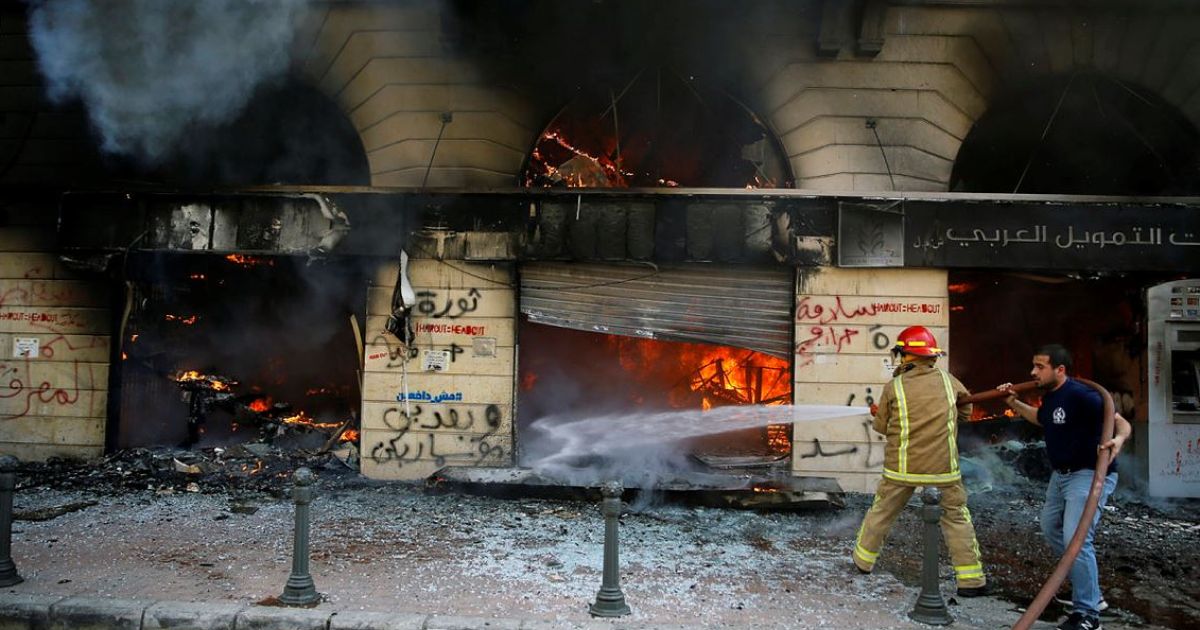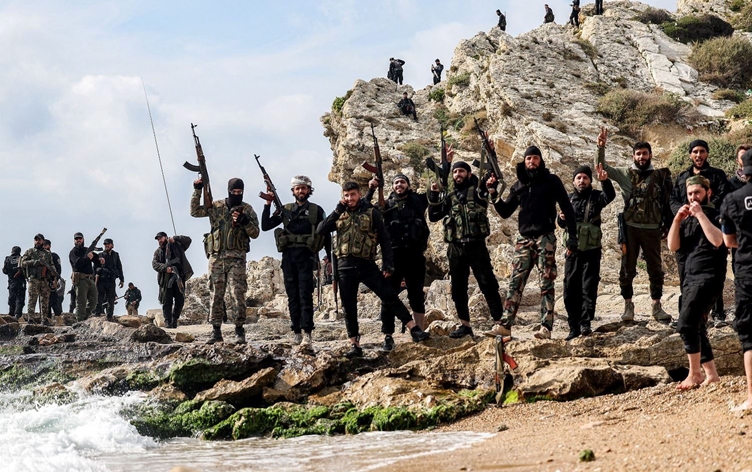
At least a dozen Lebanese banks across the country were torched and vandalized during the third consecutive night of angry protests fueled by frustration over the national currency's unfettered depreciation. While the country is on fire, wealthy Lebanese try to escape on their private jets.
By Alberto de Luca
Banks appear to be the chosen target in this second phase of Lebanon's popular uprising. The last three nights have seen a large number of bank branches being put in flames with Molotov cocktails by angry protesters. Hundreds of demonstrators took to the streets from Beirut to southern Sidon along with Nabatieh, the Bekaa Valley, and Tripoli and Akkar in the north.
Currently the capital Beirut has been spared any violence against banks. The anger is fueled by the free fall of the local currency against the US dollar, which is dramatically cutting down the purchase power of the residents.
Banks are seen by many as accomplices in the “financial engineering” operations that have been running in the Country for years, offering implausibly high returns on deposits, and that has been compared to a Ponzi scheme by some financial analyst.
So far the violent confrontations between protesters and Lebanese security forces have left one dead, the 26-year old Fouaz al-Semaan, a resident of the city of Tripoli. It remains unclear how many civilians were hurt, but estimates go as far as more than a 100. It has been report that 81 security personnel were injured across the country during attempts to contain the riots, including 50 in Tripoli, the military said.
Human Rights Watch said on Tuesday the army's heavy-handed response to the protests had inflamed tensions. It called for a transparent investigation into al-Semaan's death, the results of which it said should be made public.
Riad Salameh
A public speech of Lebanese Central Bank Governor, Riad Salameh, on Wednesday, coupled with repressive measures against money exchange shops, have succeeded in stopping the free fall of the Lira, but many think that this could be only temporary, as the scarcity of dollars in the Country is evident.
An interesting turn of events happened after a judge in the southern city of Tyre has imposed a travel ban on the Chairman and high managers of BLOM, one of the top five banks in Lebanon. Little time after, an abnormal amount of private jets have been spotted on Flightradar24, the open website which traces in real time all planes en route, leaving Beirut overnight.
All this while Beirut airport is closed down to commercial travel due to Covid-19 restrictions. This has raised speculations from observers that the wealthy elite of Lebanon might be silently starting to depart the Country, fearing the attacks and the anger against its financial sector might further spread.





